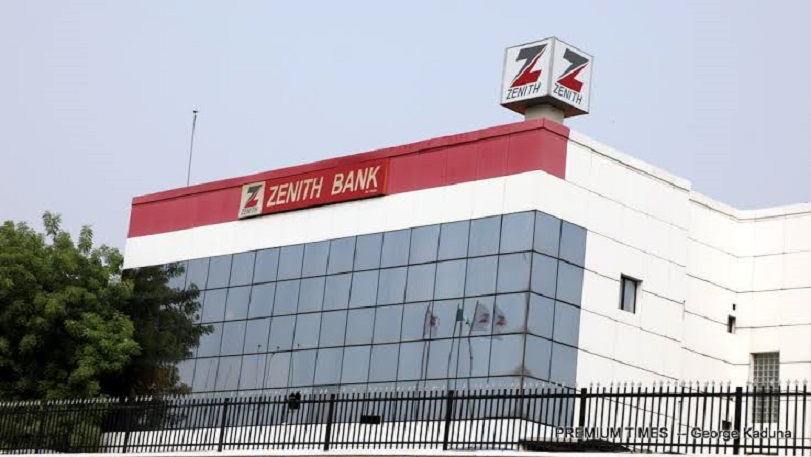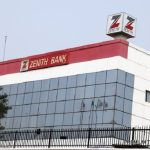Economy
Nigeria’s Oil Production Grew 9% to 2.09m Barrels in 2018

By Modupe Gbadeyanka
Group Managing Director of the Nigerian National Petroleum Corporation (NNPC), Mr Maikanti Baru, has said the nation’s crude oil daily production recorded an upward swing of about 2.09 million barrels in outgone 2018, translating to a 9 percent increment, compared with the 2017 average daily production of 1.86 million barrels.
Pitched against the low-level daily crude oil production in 2016 and what obtains now, Mr Baru said the nation had maintained a line of consistent year-on-year improvement.
For the crude oil increment and other milestones recorded by NNPC in the outgone 2018, Mr Baru, who made the submission in a comprehensive end of year message to staff of the corporation, touted the new business models his team has emplaced in the national oil company’s old and new business entitles as raison d’être for the giant strides.
A release in Abuja by NNPC Group General Manager, Group Public Affairs Division, Mr Ndu Ughamadu, said the Nigerian Petroleum Development Company (NPDC), Nigerian Gas Company (NGC), Petroleum Products Marketing Company (PPMC), Duke Oil, NIDAS and Integrated Data Services Limited (IDSL), were among the re-engineered companies listed by the NNPC GMD in his statement.
Mr Ughamadu said the GMD singled out NPDC, the corporation’s Upstream flagship company, as the major contributor to the Industry’s success story in 2018, expressing enthusiasm on the 52 percent daily crude oil production growth by the company vis-à-vis its 2017 performance.
Mr Baru in the end-of-year statement explained that the average production from NPDC’s operated assets alone grew from an average of 108,000 of oil per day (bod) in 2017 to 165,000bod in 2018, describing the feat as the strongest production growth within the Oil Industry in recent times, even as he added that it was worth being celebrated.
The GMD said NPDC’s equity production share which stands at 172,000bod, representing about 8 per cent of national daily production, was no less impressive, saying the desired results are outcomes of initiatives his Management team emplaced, among which, he noted, are the Asset Management Tea (AMT) structure, Strategic Financing, Units Autonomy and security architecture framework.
Of the Industry milestones in the outgone year, Mr Baru described the 200,000bop addition which the Egina Floating Production Storage and Offloading (FPSO), completed and sailed away to location in August last year, added to nation’s daily production, even as he disclosed that the project achieved First Oil at 11.20pm on December 29, 2018.
In end-of-year statement, the release by the NNPC spokesman stated the NNPC GMD relayed to staff, a save of $1.7 billion dollars by NNPC, with corporation’s Joint Venture (JV) partners over a five-year tenor repayment plan, saying already the corporation has defrayed $1.5 billion of the arrears.
Mr Baru made the promise that NNPC would stick to the Repayment Agreement with the JV Partners while transiting to self-funding IJV modes with the corporations partners, saying that tiding up the Cash Call issues has led to increased commitment and enthusiasm to invest in Nigerian Oil and Gas Industry even as it has also boosted NNPC’s credit profile internationally.
Mr Baru concluded the achievements of NNPC in the Upstream sector by listing other milestones achieved by his team to include: reduction in contracting cycle for Upstream Operations to nine months from an average of 24, even as the corporation targets a six months cycle; lowering of production cost from $27/barrel to $22/barrel; and improving on the security situation in the Niger Delta through constructive engagement and dialogue with relevant stakeholders.
He revealed that in the frontier basins, NNPC has intensified explorations activities in the Benue Trough, with the expected spudding of Kolmani River Well 2 on January 19, 2019, explaining that activities would resume in the Chad Basin as soon as there is a greenlight on the security situation in the enclave.
In the Midstream, the NNPC GMD stated that in 2018, Nigeria achieved an average national daily gas production of 7.90bscf, translating to 3 percent above the 2017 average daily gas production of 7.67bscf.
He said out of the 7.90bscf produced in 2018, an average of 3.32bscfd (42 percent) was supplied to the Export market, 2.5bscfd (32 percent) for Reinjection/Fuel Gas, 1.3bscfd (16 percent) was supplied to the domestic market and about 783mmscfd (10 percent) was flared.
The GMD stated that out of the 1.3bscfd supplied to the domestic market, an average of 71mmscfd went to the Power Sector, while 470mmscfd was supplied to the Industries and the balance of 69mmscf delivered to the West African Market through the West African Gas Pipeline (WAGP).
Dr. Baru said NNPC would bridge the medium-term domestic gas supply deficit by 2020 through the corporation’s Seven Critical Gas Development Projects (&CGDPS), adding that a reputable Project Management consulting firm is collaborating with an NNPC team to achieve accelerated implementation of the projects.
He assured that full implementation of the project would boost domestic gas supply from about 1.5bscf/d to 5bscf/d by 2020, with a corresponding 500 percent increase in power generation and stimulation of gas-based industrialization.
Mr Baru said all existing power plants in the country now had a permanent gas supply pipeline infrastructure, even as he stressed that the corporation would continue to expand and integrate its gas pipeline network system to meet increasing domestic gas demand.
He listed key gas pipeline infrastructure projects on which, he noted, significant progress had been made in their execution to include: Escravos-Lagos Pipeline System (ELPS II), Obiafu/Obrikom-Oben (OB3), Odidi-Warri Expansion Pipeline (OWEP), Trans Nigeria Pipeline Project (TNGP) – Ajaokuta-Kaduan-Kano (AKK) Pipeline, Trans Nigeria Pipeline Project (TNGP) and Nigeria-Morocco Gas Pipeline (NGMP) Project.
In the Midstream Refinery Sub-sector, Mr Baru regretted that the nation’s three refineries had not undergone Turn Around Maintenance (TAM) for an aggregate of 42 years combined.
Despite the challenge, he explained that major rehabilitation works were carried out in all the three refineries, saying, WRPC has its Distribution Control System (DCS) successfully upgraded, PHRC had major interventions in Fluid Catalytic Cracking Unit (FCCU) and Power Plant Unit (PPU) fixed, while KRPC was undergoing major repairs of its FCCU, Catalytic Reforming Unit (CRU) and Crude Distillation Unit 2 (CDU2).
He noted that efforts were afoot to get the original builders of the refineries to carry out TAM on them after securing favourable private funding for the exercise.
In the Downstream Sector, Mr Baru noted that even though 2018 was riddled with some supply shortages, he was delighted that the corporation rose to the occasion with the support of President Muhammadu Buhari and the resilience and hard work of NNPC staff, saying as at today, there is fuel availability in the nook and cranny of the country.
The GMD disclosed that NNPC imported a total of 15,874,734.82 MT of Premium Motor Spirit (PMS) otherwise called petrol through the DSDP and the NFSF arrangement in 2018, representing 62 percent increase over the 2017 supplies of 9,807,264.61MT, saying that as at today, the national oil company has 2.98 billion litres, equivalent to over 59 days sufficiency at 50 million litres daily evacuation rate.
Mr Baru said the corporation’s depots had been resuscitated and put to use through decanting of over 140 million litres of PMS nationwide, explaining that systems 2B and 2E pipelines supplying petroleum products to South West, South-South and South East Regions have been resuscitated.
GMD assured that NNPC was on track in respect of the corporation’s 12 key Business Focus Areas (BUFA), and the vision of President Buhari to improving the status of oil and gas infrastructure through ensuring products availability to support national economic recovery and growth.
He lauded the contribution of the corporation’s downstream outfit, NNPC retail, saying it played a significant role in ensuring continuous supply of petroleum products to Nigerians through its mega, affiliates and leased stations.
Mr Baru touted the company’s sale of 1.2 billion litres of petroleum products in 2018 as against 1.1 billion litres in 2017, representing a 7 percent increase.
He said the feat was achieved through an addition of 40 new affiliate and leased stations, which he said, brought the company’s network to 618 stations nationwide.
He enthused NNPC Retail had transformed from loss making to profitability.
“We are currently planning for a better performance and achievement in 2019 especially with the continuous innovations and creativity in the downstream sector and the performance bond signed by all the relevant heads of our operating units. Continuous improvement as one of the principles of World Class Organizations is going to remain our key word in 2019. 2018 was empirically better than 2017, we believe, plan and strive to achieve a better performance come 2019, by God’s Grace”, Mr Baru concluded in his end-of-year statement.
Economy
Analysts Predict 18% Inflation Rate for January 2026

By Adedapo Adesanya
Analysts have projected that Nigeria’s headline inflation could rise to about 18 per cent in January, defying the downward trend recorded in 2025.
The forecast comes ahead of the first Consumer Price Index (CPI) data release by the National Bureau of Statistics (NBS) of 2026 due on Monday.
Headline inflation closed December at 15.15 per cent year-on-year, while the annual average eased sharply to 23.33 per cent from 33.18 per cent in 2024.
According to analysts at Cowry Research, the recent CPI normalisation has created a lower base for January comparisons, making a temporary uptick in headline inflation likely in January and possibly February. It projects inflation to trend within the 17.8 per cent to 18.7 per cent range in 2026, driven by election-related spending pressures and fading base effects, even as structural reforms support a medium-term disinflation path.
Similarly, analysts at Quest Merchant Bank said the lower base effect could push January inflation to around 18 per cent to 19 per cent. They, however, expect inflation to resume a broadly disinflationary trajectory over the course of the year, supported by softer energy prices, stable exchange rate conditions and easing food costs.
Last year’s deceleration was driven largely by base effects after the stats office normalised its CPI computation methodology. Unlike previous rebasing exercises that used a single month as the base period, the agency calculated the base using the average of all months in 2024. The rebasing also involved reweighting several categories and expanding the inflation basket to 934 items from 740.
In December alone, the NBS published two separate inflation figures for December after the CPI methodology tweaking caused the headline rate to more than double.
Nigeria’s inflation data are closely monitored by the Central Bank of Nigeria (CBN) as it transitions toward an inflation-targeting monetary policy framework.
The CBN has already factored in the CPI rebasing and related computational issues in its three-year inflation forecast.
The apex bank is targeting a slowdown in inflation to around 13 per cent by next year, despite current price pressures and statistical adjustments.
The Monetary Policy Committee (MPC) will meet next week, and today’s inflation report will form the basis for whether there will be a cut or hold in the interest rates.
Economy
Deap Capital, Access Holdings, Zenith Bank Lead Activity Chart

By Dipo Olowookere
The trio of Deap Capital Management & Trust, Access Holdings, and Zenith Bank led the activity chart of the Nigerian Exchange (NGX) Limited last week.
In the five-day trading week, Customs Street posted a total turnover of 4.652 billion shares worth N193.326 billion in 286,751 deals compared with the 3.860 billion shares valued at N128.581 billion traded in 240,463 deals a week earlier.
According to data, financial services equities dominated the activity chart with 2.782 billion units sold for N74.063 billion in 104,325 deals, contributing 59.81 per cent and 38.31 per cent to the total trading volume and value, respectively.
Services stocks recorded the sale of 573.189 million units worth N7.177 billion in 28,784 deals, and consumer goods shares exchanged 317.667 million units valued at N24.027 billion in 33,280 deals.
Deap Capital, Access Holdings, and Zenith Bank accounted for 980.253 million shares worth N30.182 billion in 25,390 deals, contributing 21.07 per cent and 15.61 per cent to the total trading volume and value apiece.
Business Post reports that 79 equities appreciated versus 71 equities in the previous week, as 27 stocks depreciated versus 35 stocks in the previous week, while 42 shares closed flat, the same as the previous week.
Zichis was the best-performing stock after it gained 60.71 per cent to trade at N10.80, Union Dicon appreciated by 60.15 per cent to N20.90, DAAR Communications grew by 55.26 per cent to N2.95, Fortis Global Insurance rose by 50.00 per cent to 39 Kobo, and John Holt grew by 45.21 per cent to N10.60.
On the flip side, Abbey Mortgage Bank lost 26.42 per cent to quote at N11.00, Sovereign Trust Insurance shrank by 17.16 per cent to N2.80, Ecobank declined by 13.29 per cent to N45.00, SAHCO went down by 11.59 per cent to N135.00, and Austin Laz depleted by 11.11 per cent to N4.80.
Last week, the All-Share Index (ASI) and the market capitalisation appreciated by 6.16 per cent to 182,313.08 points and N117.027 trillion, respectively.
In the same vein, all other indices finished higher with the exception of the sovereign bond index, which fell by 0.01 per cent.
Economy
Worries Intensify as Attacks in Nigeria Spread Southwards

By Adedapo Adesanya
Nigeria’s security crisis is spreading southwards as jihadists and armed gangs step up attacks in parts of the country largely untouched by decades of violence.
Over the last few months, there had been an alarming increase in violence, especially in relatively low-conflict areas. The Nigerian government has long been fighting an array of jihadist groups, including Boko Haram and IS-linked factions, but largely in the North-East. However, some new groups are gaining footholds, spreading south.
Earlier this month, 162 people were killed in an attack in Kwara State. The gruesome murder in the central part of the country last week highlighted the fundamental shift in the nature and geography of the insecurity crisis facing Africa’s most populous nation.
The increased attacks come even as President Bola Tinubu declared a security emergency and the United States deployed troops to the nation, as part of cooperation efforts to tackle insecurity.
This weekend, at least 32 people were killed after gunmen launched simultaneous attacks on three separate communities in Niger State, which has the Federal Capital Territory (FCT) to the southeast and Kwara State to its southwest. The communities of Tunga-Makeri, Konkoso, and Pissa, all located in the Borgu area of Niger state, were targeted in early raids on Saturday, February 14.
According to Niger State police spokesman, Mr Wasiu Abiodun, six people died in the assault on Tunga-Makeri, adding that it was not clear how many people had been abducted.
Mr Abiodun said that Konkoso was also attacked, but gave no other details other than that security teams have been sent to the scene and a rescue operation for those who were abducted was under way.
A resident, Mr Abdullahi Adamu, from Konkoso, reportedly said 26 people were killed in the attack there, describing how the attackers were “operating freely without the presence of any security”.
The attack on Tungan Makeri reportedly began on Friday, when over 200 armed men stormed the village, shooting sporadically and setting several houses on fire.
There were also reports that an Air Force aircraft was sighted around Tungan Makeri after the initial attack, a development some residents believe forced the bandits to withdraw from the village.
-

 Feature/OPED6 years ago
Feature/OPED6 years agoDavos was Different this year
-
Travel/Tourism10 years ago
Lagos Seals Western Lodge Hotel In Ikorodu
-

 Showbiz3 years ago
Showbiz3 years agoEstranged Lover Releases Videos of Empress Njamah Bathing
-

 Banking8 years ago
Banking8 years agoSort Codes of GTBank Branches in Nigeria
-

 Economy3 years ago
Economy3 years agoSubsidy Removal: CNG at N130 Per Litre Cheaper Than Petrol—IPMAN
-

 Banking3 years ago
Banking3 years agoSort Codes of UBA Branches in Nigeria
-

 Banking3 years ago
Banking3 years agoFirst Bank Announces Planned Downtime
-

 Sports3 years ago
Sports3 years agoHighest Paid Nigerian Footballer – How Much Do Nigerian Footballers Earn











